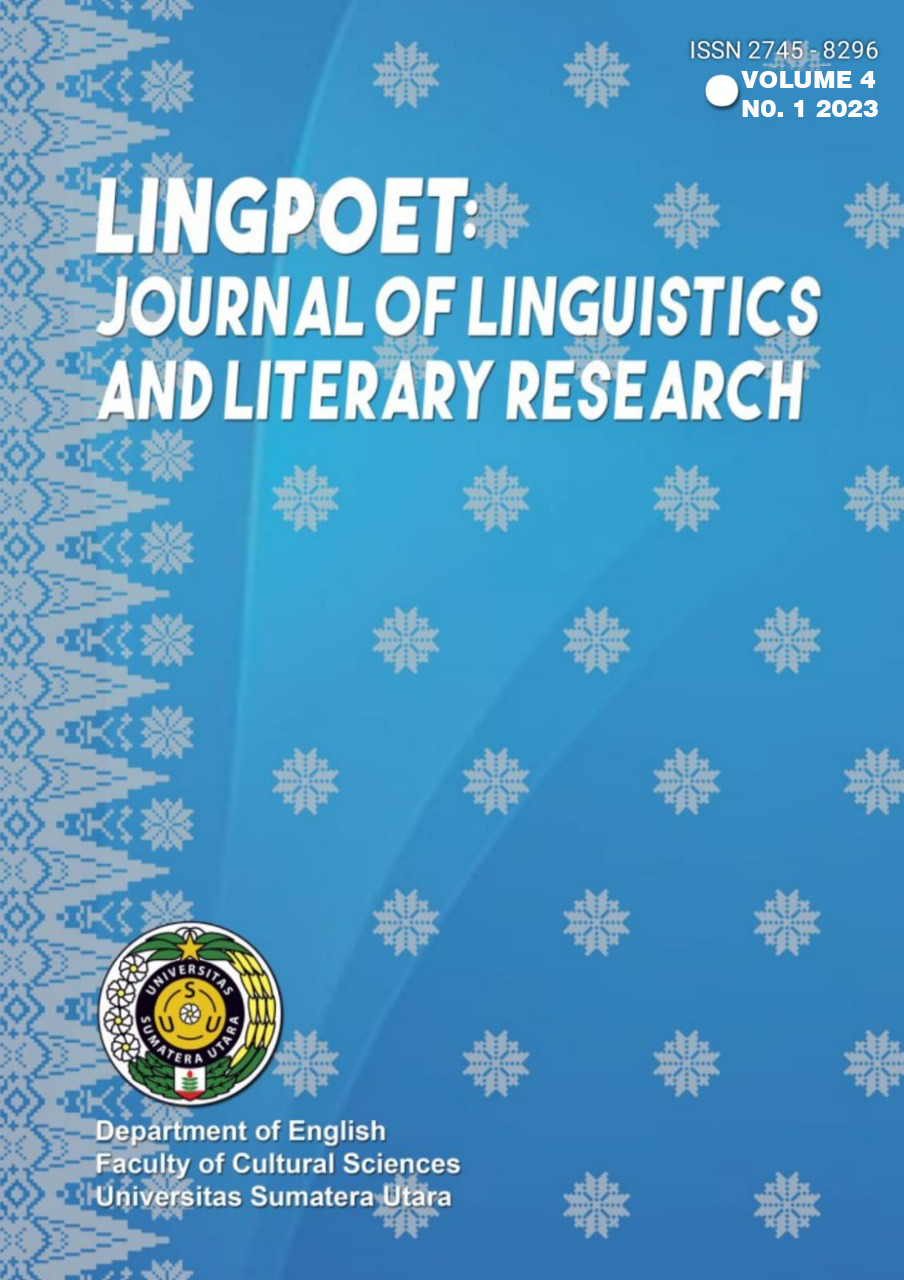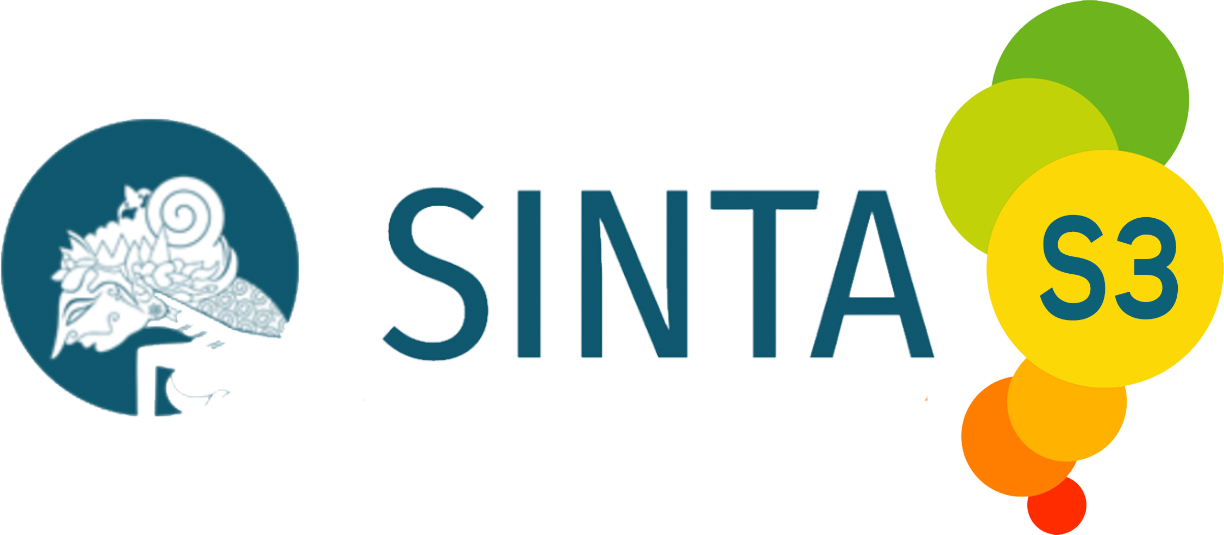The Using of English Songs to Activate Student's Speaking English Skills
DOI:
https://doi.org/10.32734/lingpoet.v4i1.10500Keywords:
English song, Speaking SkillAbstract
This study's objective was to examine how songs were used to teach speaking proficiency to elementary school kids as well as the issues that teachers ran into. The goal of incorporating the song into all learning phases is to help students become accustomed to the English language's vocabulary and pronunciation by employing an enjoyable method—a song that they are already familiar with. Based on the findings of this study, it can be concluded that the teacher primarily integrated the song into the learning in three activities, such as the opening, while, and closing activities, by providing the students with the link to a YouTube video and assisting them with translation to motivate the students to learn to speak English by using the song. The problem that mostly occurred in the class teaching song for speaking English was not confident in speaking. Because of that, implementing the song for learning English to activate students’ speaking skill.
Downloads
References
Hatch, Evelyn, and Brown, Cheryl, Vocabulary, Semantic and Language Education. Cambridge: Cambridge University Press, 2001.
D. Campbell, The Mozart Effect for Parent: Unlocking the Potential Of Your Child. New York: Penguin Publisher, 2010.
D. Paul, Teaching English to Children in Asia. New York: Longman, 2006.
S. Parto, Seni Musik Barat dan Sumber Daya Manusia. Yogyakarta: Pustaka Belajar, 1996.
D. Dahler, “Using songs in The Speaking Class: Improving Students’ Abilities in a Relaxing Way,†ELT-Lect., vol. 1, no. 1, pp. 34–38, 2014, doi: https://doi.org/10.31849/elt-lectura.v1i1.448.
A. Rokhim, “Improving The Speaking Skill Of The Ninth Grade Students Of mts Nu Pakis Using Songs,†2014, [Online]. Available: http://jurnalonline.um.ac.id/data/artikel/artikel181B6340FEFD58DA6A52FB3F11DA941E.pdf
S. Kasihani, Englis for Young Learners Melejitkan Potensi Anak Melalui English Class yang Fun, Asyik dan Menarik. Jakarta: Bumi Aksara, 2001. [Online]. Available: http://www.studytechniques.org/wwhy-study-with-flashcard-html
D. T. Griffee, Song in Action. Hertfordshire: Prentice Hall International, 2001.
M. Cuesta, Songs in the English Class: A Strategy to Encourage Tenth Graders’ Oral Production. 2006.
J. McCarthy, “Songs in The Classroom: TESOL Courses,†2006. [Online]. Available: http://www.tesolcourse.com/tesol-course-articles/songs-classroom/article-01jmc. php
K. Schoepp, “Reasons for Using Songs in the ESL/EFL Classroom,†Internet TESL J., 2001, [Online]. Available: https://www.researchgate.net/publication/309390126_Reasons_for_Using_Songs_in_the_ESLEFL_Classroom
S. D. Krashen and T. D. Terrel, The Natural Approach: Language Acquisition in the Classroom. San Francisco: Alemany Press, 1983.
A. Burns and H. Joice, Focus on Speaking. Sydney: National Center for English Language Teaching and Research, 1997.
J. Harmer, The Practice of English Language Teaching, 4th ed. London: Edinburgh Gate, 2007.
J. McDonough and C. Shaw, Materials and Methods in ELT. Oxford: Blackw ll Publishers, 1993.
N. Nanda, “Western songs in improving students’ speaking abilities at junior high school,†2012, doi: http://ejournal.unp.ac.id/index.php/jelt/article/view/613.
M. Sagita, Ramlan, and N. Vita, “The Effect of Using English Songs on Students’ Speaking Skills,†J. Sains Ris. Univ. Jabal Ghafur, vol. 10, no. 1, 2020, [Online]. Available: http://journal.unigha.ac.id/index.php/JSR/article/view/216
A. Ghanbari and M. Hashemian, “The effects of English songs on teacherng learners’ listening comprehension and pronunciation,†Int. J. Lang. Learn. Appl. Linguist. World, vol. 6, no. 3, pp. 367–375, 2014.
P. E. Kristiani and D. A. M. Pradnyadewi, “Effectiveness of TeacherTube as Learning Media in Improving Learners’ Speaking Skills,†Art Teach. Engl. Foreign Lang., vol. 2, no. 1, pp. 7–11, 2001, doi: https://doi.org/10.36663/tatefl.v2i1.97.
Winarto, F. Saguni, and A. Syahid, “Effectiveness the Use of Audio Visual Media in Teaching Islamic Religious Education,†2020, doi: http://dx.doi.org/10.24239/ijcied.Vol2.Iss1.14.
M. Mokhtar, M. Mayuasti, and M. K. Ikhsan, “The Implementation of English Song in Building English Vocabulary at Murni Kindergarten Padang,†Tell-Us J., vol. 3, no. 1, pp. 25–35, 2017, doi: https://doi.org/10.22202/tus.2017.v3i1.2520.
I. P. Sari, E. E. Asahra, and Yana, “Improving Students’ Vocabulary Mastery Using Flash Cards,†Proj. Prof. J. Engl. Educ., vol. 2, no. 6, p. 845, 2019, doi: https://doi.org/10.22460/project.v2i6.p845-851.
Downloads
Published
How to Cite
Issue
Section
License
Copyright (c) 2023 LingPoet: Journal of Linguistics and Literary Research

This work is licensed under a Creative Commons Attribution-ShareAlike 4.0 International License.













